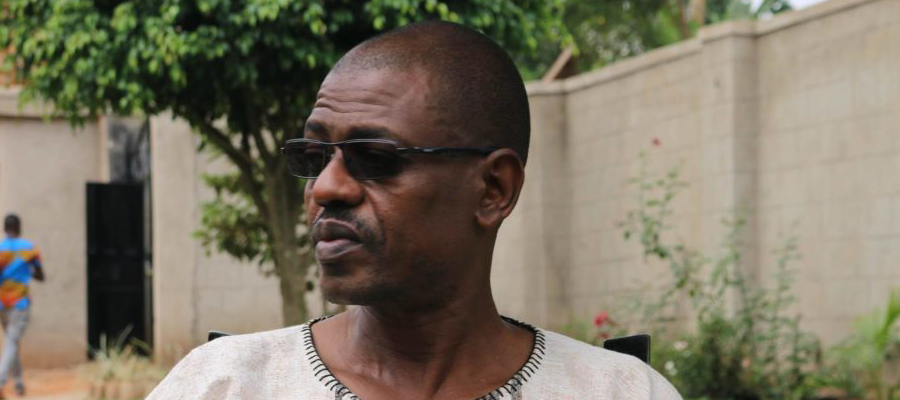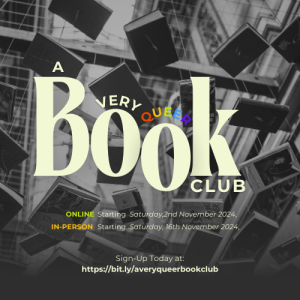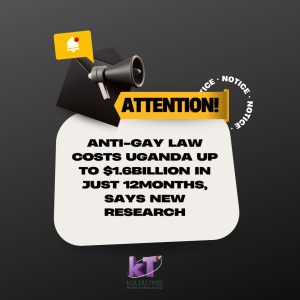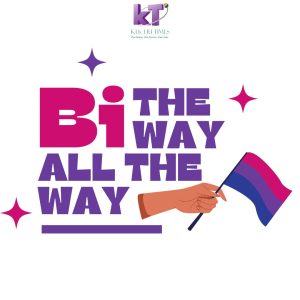Kindly introduce yourself to our readers
My name is Samuel Ganafa Kiiza , I was born fifty six years ago. I have lived most of my adult life as an activist although I also held a permanent job position with one of the biggest telecom companies in the country from which I retired at the beginning of this year.
My full concentration will now be on LGBTI activism that I have been involved in since 2002/03 when we started Spectrum Uganda Initiative. I am dedicating my time now is to re-integrating myself into the activism system that I was previously giving just a portion of myself.
Take us through your journey as an advocate for the health rights of men who have sex with men (MSM) and the background of Spectrum Uganda Initiatives
My activism started from a conversation with a friend; we were discussing the situation regarding LGBTI persons in 2002. This particular friend needed medical assistance and we reached out to an ally from Australia who helped out. This partnership eventually led to the birth of Spectrum Uganda Initiatives with the Australian ally Geoffrey Heaveside playing a major role in the organisation’s establishment.
He advised that if we came together as an organisation, advocacy for our health rights could then be streamlined and better organised. At the time anyone who tested HIV positive or was confirmed to have any other venereal disease was required to go for medication together with their partner; that policy worked well for heterosexuals but was not effective when it came to LGBTI persons since they could not freely disclose who their partners were.
We recognised the need for gay men and other LGBTI identifying persons to be able to access the same health services that were available and this is what our advocacy was essentially based on. By 2004, Spectrum was a registered organisation.
What would you say has changed between the earlier days of the movement’s formation and now?
First of all, I can barely believe how much the movement has grown; one of the biggest challenges we have always faced is the wide spread lie that activists are out to recruit people into homosexuality. I did not think that so many people would be brave enough to embrace who they are with such negativity surrounding us. I always wondered how we were purportedly recruiting people into something they didn’t want? All of a sudden, more LGBTI persons started coming forward, owning their sexuality and demanding to be respected like every other citizen; it was a revolution!
People got to know each other, and the advocacy and strategic partnerships grew from there- for instance we did not know about lubricants and some people did not even know how essential condoms were in the fight against HIV and other sexually transmitted infections. Now, here we were teaching one another about laws, health, socializing and advocacy.
However, when there are so many people as they are today, there are different motives at play. In the beginning we were not even aware of funding or donors, these organisations were being run from chip-ins from different people that were running them- it was a proper struggle. I clearly remember while trying to establish Spectrum, people like Long Jones, Moses Kimbugwe, Karemire, the late David Kato and I would get our small earnings and visit each other- our homes were our meeting and working space. Currently, it is difficult to tell who simply wants to milk a rather sad situation for their own selfish reasons.
We also have people who have joined the community not because they are passionate about what they are doing but because they think the movement is financially lucrative. The in-fighting within the movement also makes me wonder where we are headed and if we are still focusing on the same things.
How did the tabling of the Anti-Homosexuality bill in 2009 change the movement, both locally and globally?
The AHA had two sides to it, it had negative and positive elements;
It opened up serious debate about LGBTI issues because it became a daily debate, every radio, newspaper, TV and major policy influencers was talking about the bill. Ugandans suddenly woke up to the realisation that LGBTI persons existed and lived amongest them. This was a positive step,- leaders who had previously been saying that there was no need to incorporate LGBTI persons into the broader policies because they did not exist, actually woke up to the reality that were are part and parcel of society.
The bill also opened the eyes of the international community to focus on Uganda- we received alot of support not only financially but also morally and there was a lot of capacity building within the movement.
However, the AHA also gave the anti-gay crusaders an opportunity to splash their propaganda. They used to talk about recruitment and promotion- a notion they have continued to spread to to this day. People were harassed, fired from their jobs, rejected by families and friends, lynched and an increase in arrests was registered. It was a very terrible time as people were continuously being outed.
What would you say are some of the movement’s greatest achievements?
One, visibility has been improved; although it is still a very difficult situation, people now have a sense of pride are no longer easily intimated.
There is also a lot of networking globally. We used to have a lot of negative sentiments from religious leaders but we now see some coming out to support the cause. We now have members who have trained to become pastors and these are spreading the gospel of inclusion and acceptance.
The sensitization about HIV/AIDS within the community must be commended- a lot of effort has gone to curbing this deadly virus,and key health players have also been brought on board to have LGBTI issues tackled when policies are being formulated. Service providers like MARPI and TASO have also come on board.
Strategic partnerships and engagements continue to be carried forward with police, the judiciary, Members of Parliament, cabinet ministers etc. Several organisations have taken on this mantle and as slow as the process might be, it has created a lot of attitude change.
Who knew Uganda would have pride? It is something that we used to read about or try to attend for the few who could afford to travel abroad but here we are now, attending our very own pride festival, year after year.
Seeing the shift in advocacy to new innovations like our own media platform must also be celebrated.
EDITOR’S NOTE: Look out for Sam Ganafa’s full video interview tomorrow




